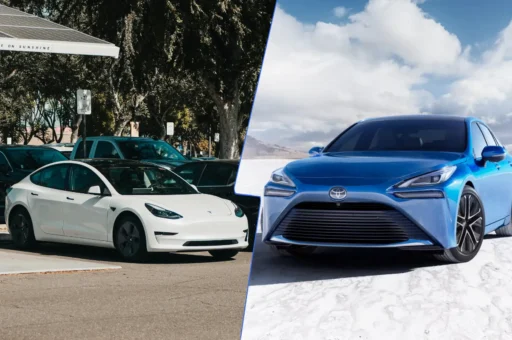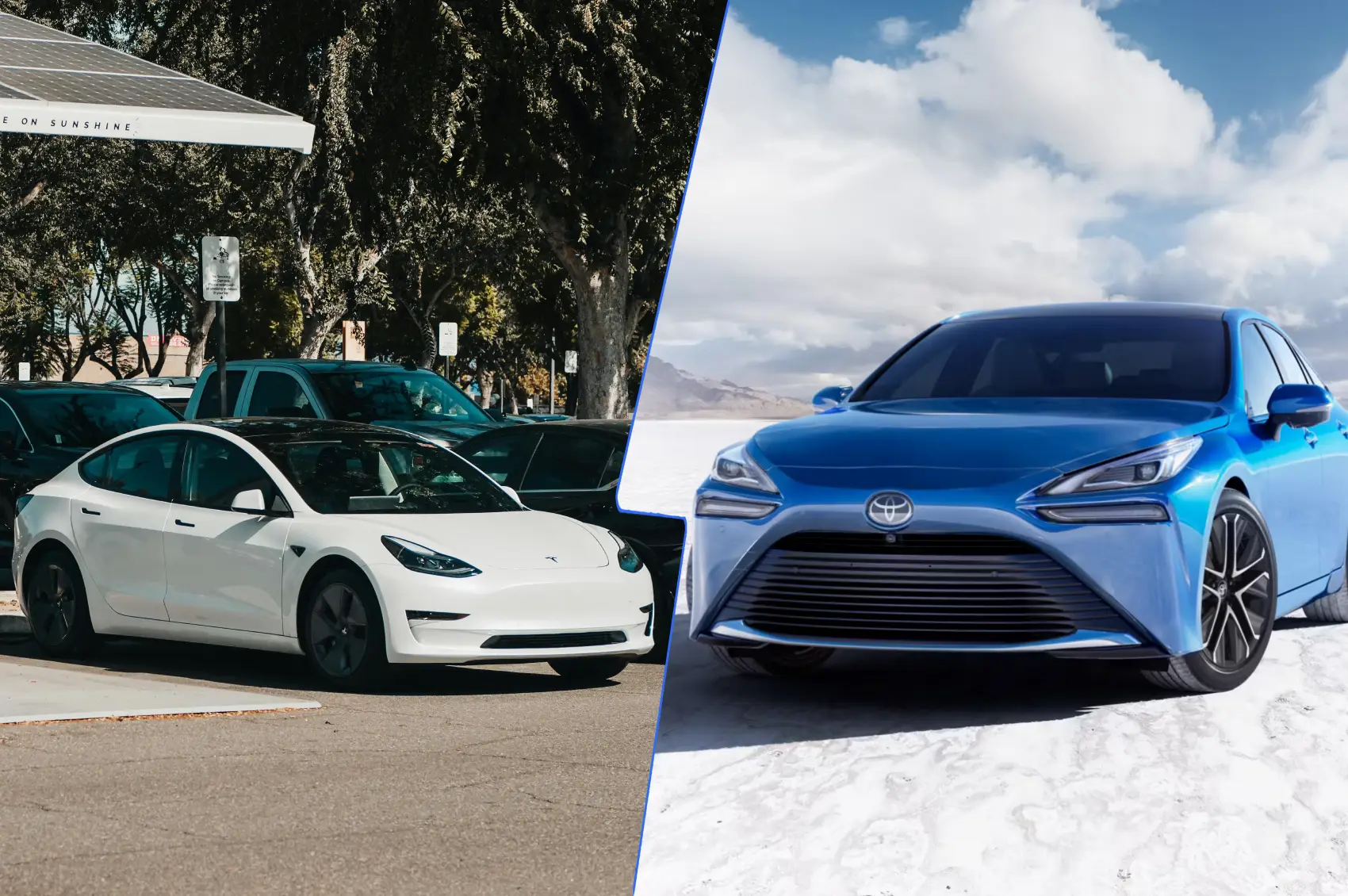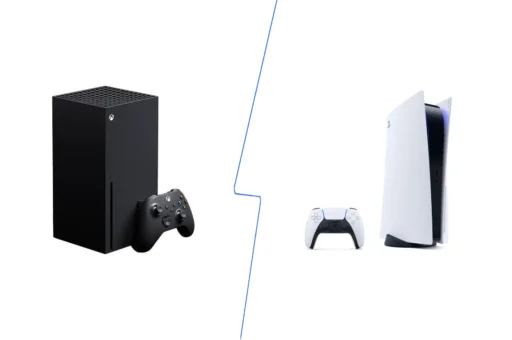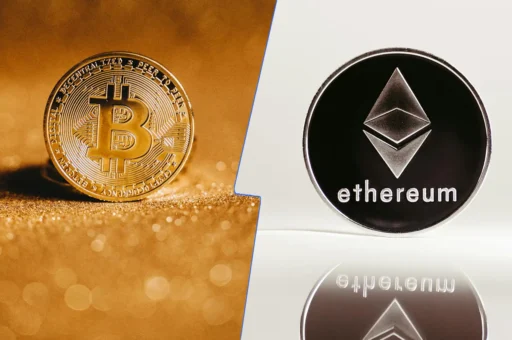Introduction
As the world moves toward greener energy solutions, two key contenders have emerged in the race to revolutionize transportation: electric cars and hydrogen fuel cell vehicles. Both promise to reduce dependence on fossil fuels and contribute to a cleaner planet, but they operate on distinct technologies, each with its advantages and challenges. This article will explore the differences between electric vehicles (EVs) and hydrogen cars, comparing their technology, environmental impact, cost, and market adoption. Ultimately, which one will dominate the future of clean transportation?
Technology and Energy Source
Electric Cars
Electric cars are powered by lithium-ion batteries, which store electricity that is used to run the motor. Charging stations are required to recharge the batteries, and advancements in technology have significantly increased battery efficiency and range. Electric cars rely on the electricity grid, which means the environmental benefits of EVs are partially dependent on how the electricity is produced.
Hydrogen Cars
Hydrogen cars use hydrogen fuel cells to generate electricity by converting hydrogen gas into electrical power, with water vapor being the only emission. The hydrogen fuel cell powers the vehicle’s electric motor, offering longer ranges than most electric cars. Unlike battery-powered EVs, hydrogen cars can be refueled quickly, akin to conventional gasoline cars.
Key Comparison
- Electric cars: Use stored electricity from batteries, requiring charging stations.
- Hydrogen cars: Use fuel cells to produce electricity, with quick refueling times.
Infrastructure and Availability
Electric Cars
The infrastructure for electric cars is rapidly expanding, with charging stations appearing worldwide. While cities and urban areas are seeing robust growth in public chargers, rural areas still lag behind. However, charging times can be a drawback, as even fast-charging stations require 30 to 60 minutes to provide a substantial charge.
Hydrogen Cars
Hydrogen cars, despite their advanced technology, face significant challenges in terms of infrastructure. Hydrogen fueling stations are sparse, especially outside of select regions like California or Germany. However, once infrastructure is developed, hydrogen cars could refuel in under five minutes, similar to traditional gasoline vehicles.
Key Comparison
- Electric cars: Supported by a growing network of charging stations, but charging takes time.
- Hydrogen cars: Refueling is fast, but the infrastructure is lacking.
Environmental Impact
Electric Cars
Electric cars are often hailed as eco-friendly, but their environmental benefits depend on the source of electricity used to charge them. If the electricity comes from renewable energy sources, EVs offer near-zero emissions. However, if the grid relies on fossil fuels, the environmental impact increases. Additionally, the production of lithium-ion batteries is resource-intensive, raising concerns about mining, resource depletion, and battery disposal.
Hydrogen Cars
Hydrogen cars have the potential for zero emissions if green hydrogen—produced from renewable energy through electrolysis—is used. However, most hydrogen is currently produced using natural gas, which results in carbon emissions. Transitioning to green hydrogen could drastically reduce the environmental footprint of hydrogen cars, but technological advancements are needed to make this economically viable on a large scale.
Key Comparison
- Electric cars: Rely on electricity, with environmental impact tied to the energy grid.
- Hydrogen cars: Can achieve zero emissions with green hydrogen, but current production methods are still emission-heavy.
Cost and Market Adoption
Electric Cars
The cost of electric cars has been steadily declining due to advancements in battery technology and increased production scales. With more affordable models entering the market, like the Tesla Model 3 and Nissan Leaf, consumers now have a wide range of options, from budget-friendly to luxury EVs. Government incentives and tax rebates in many countries further encourage EV adoption.
Hydrogen Cars
Hydrogen cars are currently more expensive than electric cars, largely due to the complex process of producing hydrogen fuel cells and the lack of mass production. While options like the Toyota Mirai and Hyundai Nexo are available, the limited selection and high price points have restricted their widespread adoption. Without substantial infrastructure investment, the costs associated with hydrogen cars will likely remain higher.
Key Comparison
- Electric cars: Prices are dropping, with numerous models available from budget to luxury.
- Hydrogen cars: More expensive with limited market options.
Performance and Efficiency
Electric Cars
Electric cars are highly efficient at converting stored energy into motion, but their range is limited by battery capacity. Although range anxiety has decreased with new advancements, most electric cars need recharging after traveling 200-400 miles. Additionally, the performance of electric cars is well-regarded, with some models offering instant torque and impressive acceleration.
Hydrogen Cars
Hydrogen cars boast longer ranges, with some models exceeding 400 miles on a single tank. However, hydrogen is less energy-efficient than electricity in terms of conversion to usable power, meaning hydrogen cars use more energy to travel the same distance as electric cars. That said, hydrogen cars offer the advantage of fast refueling times, allowing drivers to quickly get back on the road.
Key Comparison
- Electric cars: Efficient but limited by battery range.
- Hydrogen cars: Longer ranges but less energy-efficient in converting hydrogen into power.
Celebrities and Influencers: Who Prefers Which?
Electric Cars
- Leonardo DiCaprio – A known advocate for environmental sustainability, DiCaprio drives a Tesla.
- Robert Downey Jr. – The Iron Man actor is a proud owner of an electric car and promotes green technology.
- Ariana Grande – The pop star is frequently seen driving her Tesla Model S.
- Will Smith – Will Smith has also adopted electric driving with his Tesla Model S.
- Bill Gates – Gates has invested in electric vehicle technologies and drives a Porsche Taycan.
Hydrogen Cars
- Arnold Schwarzenegger – A major proponent of hydrogen technology, Schwarzenegger drives a hydrogen-powered vehicle.
- James Cameron – The Titanic director has expressed his support for hydrogen cars and sustainable transportation.
- Harrison Ford – The Indiana Jones star drives a hydrogen-powered BMW Hydrogen 7.
- Jenson Button – The Formula One driver has embraced hydrogen cars as part of his commitment to clean driving.
- Jay Leno – Known for his collection of cars, Leno is a fan of hydrogen-powered vehicles like the Toyota Mirai.
Conclusion: Which Will Shape the Future of Clean Transportation?
Both electric and hydrogen cars offer promising paths toward a sustainable future, but each comes with its own set of challenges. Electric vehicles have a significant head start, with widespread adoption and rapidly improving technology. The growth of charging infrastructure and decreasing costs make electric cars the current front-runner for clean transportation. However, hydrogen cars have potential, especially in long-range and heavy-duty applications. If hydrogen production can transition to greener methods and infrastructure improves, hydrogen fuel cell vehicles could become a key player in the future of transportation.
As the industry continues to evolve, the competition between electric and hydrogen vehicles will likely come down to infrastructure development, cost-efficiency, and technological advancements. Both technologies have a place in the transition to greener transportation, and it remains to be seen whether one will dominate or if they will coexist.
Engage with Us
Which clean transportation option do you think has the most potential—electric cars or hydrogen cars? Share your thoughts in the comments below and join the conversation on social media!
Inbound Link Suggestions:
- Artificial Intelligence vs. Human Creativity: The Future
- Blockchain vs. Traditional Finance: The Future of Finance
- Muhammad Ali vs. Mike Tyson: The Legends of Boxing
Outbound Link Suggestions:
- Hydrogen Stations in Germany & Europe
- Fueling Station Locations in USA (Hydrogen & Electricity)
- EV Charging Stations Map U.K.
- Toyota Hydrogen Cars
- Tesla Electric Cars





